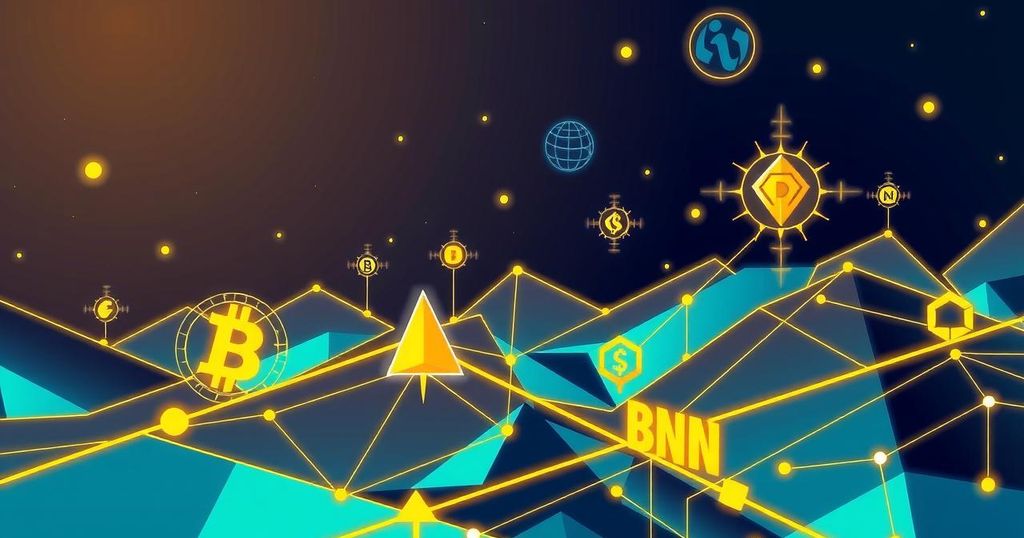BNB Chain’s Speed Boost vs. Ethereum’s Internal Rift on Fusaka Upgrade
BNB Chain has completed its Lorentz hard fork, reducing block times to 1.5 seconds on BSC and 0.5 seconds on OpBNB, marking a significant speed increase. Meanwhile, Ethereum faces internal issues with its Fusaka hard fork, notably the removal of the EVM Object Format upgrade amid debates over its necessity. This reflects differing approaches to blockchain evolution between the two networks.
The BNB Chain has just wrapped up its Lorentz mainnet hard fork, a big move for both the BNB Smart Chain (BSC) and OpBNB. This upgrade sharpens block times down to 1.5 seconds for BSC, and impressively, 0.5-seconds for OpBNB, positioning it among the fastest Layer-2 networks currently available. The BNB network is clearly pushing for improved efficiency here.
With this Lorentz upgrade, transaction confirmations are expected to speed up quite a bit, making decentralised applications (dApps) more responsive and generally giving users a smoother experience. “Welcome everyone to experience a faster and smoother BNB Chain,” the network cheerfully announced. Notably, this upgrade follows the previous Pascal hard fork, which paved the way for these improvements aiming to establish BNB Chain as a premier ecosystem for developers chasing high output and quick interactions.
Despite the excitement around BNB’s upgrades, the price of BNB has only seen a slight increase of 0.29% over the past 24 hours, trading at about $608.22 at the time of this writing. Moving on to Ethereum, the situation looks a bit rocky as its Fusaka hard fork faces internal challenges. Of particular note is the recent decision to scrap the EVM Object Format (EOF) upgrade, which was originally expected to be integrated into Fusaka.
Originally, the EOF upgrade was intended to refine Ethereum’s virtual machine (EVM) architecture, simplifying future upgrades and enhancing tools for developers. But Ethereum Foundation exec Tomasz Kajetan Stańczak stated that EOF won’t be part of the upcoming Pectra upgrade on May 7. He highlighted ongoing debates regarding EOF’s potential inclusion in Fusaka, primarily stressing, “The Pectra upgrade does not include EOF, nor intends to include it. Everything is on track for the May 7 release.”
Following this, Ethereum core developer Tim Beiko confirmed EOF’s elimination from Fusaka, linking the choice to worries over complexity and unwanted delays. “EOF was taken out of the Fusaka network upgrade today,” he noted, indicating some serious discussions among developers that led to this outcome. There’s an evident split on the necessity of EOF concerning technical benefits versus being just a symbolic step.
Researcher Storm from Paradigm underscored the seriousness of the decision, stating, “EOF is probably dead due to a lack of rough consensus. It’s a huge milestone… reflecting Ethereum’s evolution and its regard for user impact.” Opinions are mixed, as some developers feel EOF could complicate future upgrades, while others see dropping it as a shift towards focusing on user-friendly governance rather than rigid technical schemes.
Proponents argue that EOF could have provided a cleaner, modular foundation for Ethereum’s core, aligning with the vision of the platform as humanity’s “world computer” for sustainable and decentralised growth. However, with Fusaka now anticipated to launch in Q3 or Q4 of 2025, it’s clear the Ethereum community still has a lot to discuss regarding innovation and potential pitfalls of over-engineering.
The differences between BNB Chain’s forward momentum and Ethereum’s philosophical dilemmas illustrate contrasting paths in blockchain development. While BNB focuses on speed and tech enhancement, Ethereum remains fixed on building resilience and striving for social consensus.




Post Comment